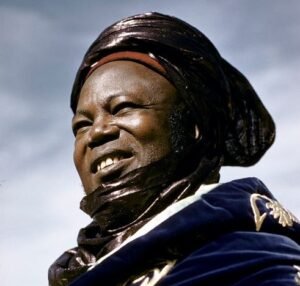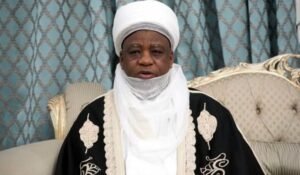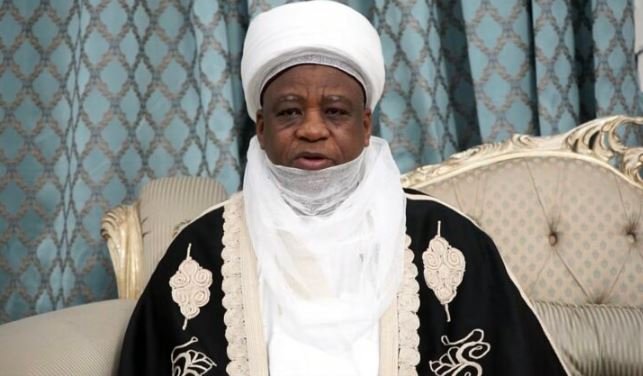The Sultan of Sokoto is the spiritual leader of Muslims in Nigeria and the head of the Sokoto Caliphate founded in 1804 by Usman Dan Fodio. This caliphate was established after a series of religious wars against local rulers in what is now northern Nigeria.
And this caliphate has become one of the largest empires in Africa, uniting different emirates across present-day Nigeria, Niger, and Cameroon. The Sultan serves as a spiritual leader for Nigeria’s Muslims, which is around 50% of the country’s total population.
READ ALSO: List Of Ministers Of State For Environment In Nigeria
List Of Sultan Of Sokoto From 1817 Till Date
No. | Name | Reign Started | Reign Ended | Reign Period |
|---|---|---|---|---|
1 | Muhammed Bello | 21 April 1817 | 25 October 1837 | 20 years |
2 | Abubakar I Atiku | 26 October 1837 | 23 November 1842 | 5 years |
3 | Ali Babba bin Bello | 30 November 1842 | 21 October 1859 | 16 years |
4 | Ahmadu Atiku | 24 October 1859 | 2 November 1866 | 7 years |
5 | Aliyu Karami | 6 November 1866 | 18 October 1867 | Less than 1 year |
6 | Ahmadu Rufai | 21 October 1867 | 12 March 1873 | 5 years |
7 | Abubakar II Atiku na Raba | 16 March 1873 | 28 March 1877 | 4 years |
8 | Mu'azu | 6 April 1877 | 26 September 1881 | 4 years |
9 | Umaru bin Ali | 3 October 1881 | 25 March 1891 | 9 years |
10 | Abd al-Rahman bin Atiku | 25 March 1891 | 10 October 1902 | 11 years |
11 | Muhammadu Attahiru I | 13 October 1902 | 15 March 1903 | Less than 1 year |
12 | Muhammadu Attahiru II | 21 March 1903 | 1915 | 12 years |
13 | Muhammadu dan Ahmadu | 1915 | 1924 | 9 years |
14 | Muhammadu dan Muhammadu | 1924 | 1931 | 7 years |
15 | Hasan dan Mu'azu Ahmadu | 1931 | 1938 | 7 years |
16 | Siddiq Abubakar III | 1938 | 1988 | 50 years |
17 | Ibrahim Dasuki | 6 November 1988 | 20 April 1996 (deposed) | 7 years |
18 | Muhammadu Maccido | 20 April 1996 | 29 October 2006 | 10 years |
19 | Sa'adu Abubakar | 2 November 2006 | Current | Ongoing (17+ years) |
READ ALSO: List Of Ministers Of Water Resources And Sanitation In Nigeria (1999-Present)
Who Was The First Sultan Of Sokoto?

Muhammadu Bello was the first Sultan of Sokoto and was instrumental in the spread of Islam in West Africa. Born on November 3, 1781, he was the son of Usman Dan Fodio, the founder of the Sokoto Caliphate.
Bello was involved in Islamic studies from a young age, closely following in his father’s footsteps. He was also known as “Bello,” which means “assistant” or “helper” in the Fulfulde language. Bello became Sultan after his father died in 1817.
His reign lasted until October 25, 1837. When he took over, the Sokoto Caliphate was one of the largest states in Africa, with many Fulani and Hausa people under its rule.
Bello aimed to unite the diverse groups within the caliphate and promote Islam throughout the region. He encouraged education for both men and women and helped establish Islamic courts, which were important for justice in his kingdom.
During his time as Sultan, Bello faced challenges from other leaders and the aristocracy. He was more open to the traditional Hausa systems compared to his father. This approach helped him gain support and stabilize his rule.
One of his notable achievements was the establishment of schools and mosques, which encouraged learning among his people. His sister, Nana Asma’u, became a well-known teacher who focused on educating women and expanding access to education across the caliphate.
Bello also had to deal with revolts, including a major uprising from the kingdom of Gobir in 1836. successfully led his forces to defeat this rebellion at the Battle of Gawakuke. Bello was not only a military leader but also a scholar and poet.
He wrote extensively on history, Islamic studies, and poetry, with one of his notable works being Infaku’l Maisuri, which chronicles the Fulani Wars. Sadly, Muhammadu Bello passed away on October 25, 1837, in Wurno. His brother, Abu Bakr Atiku, succeeded him as Sultan.
READ ALSO: List Of Ministers Of State For Health And Social Welfare In Nigeria (2011-Date)
Who Is The Present Sultan Of Sokoto?

Muhammadu Sa’adu Abubakar, born on August 24, 1956, is the current Sultan of Sokoto, having held the position since November 2, 2006.
He is the 19th Sultan in a long line that traces back to his ancestor, Sheikh Usman Dan Fodio, who founded the Sokoto Caliphate in the early 19th century.
This makes him an important spiritual leader for Muslims in Nigeria, as the Sultan of Sokoto is seen as the head of Islam in the country. Sa’adu Abubakar was born in Sokoto and is the youngest son of Sir Siddiq Abubakar III, who was the 17th Sultan and served for over fifty years.
He attended Barewa College in Zaria for his early education and then moved to the Nigerian Defence Academy in 1975, where he joined the military as part of the 18th Regular Course.
After completing his training, he was commissioned as a Second Lieutenant in 1977. He served in the Nigerian Army for nearly 30 years. In the late 1980s, he was part of a presidential security unit that protected General Ibrahim Babangida, the military ruler at the time.
He also commanded African peacekeeping forces in Chad during the early 1980s and worked as a military liaison officer for ECOWAS in the mid-1990s.
Before his retirement in 2006, he served as the Defence Attaché in Pakistan, covering countries like Iraq and Afghanistan, and he retired with the rank of Brigadier General.
Upon becoming Sultan, Abubakar succeeded his brother, Muhammadu Maccido, who tragically died in a plane crash. As Sultan, he has many responsibilities, including determining the start and end of the Ramadan fast for Muslims in Nigeria.
He leads the Qadiriyya Sufi order, which is the most influential Islamic group in Nigeria and is senior to the Emir of Kano, who leads the Tijaniyya order.
Additionally, Abubakar is the head of Jama’atu Nasril Islam, an organization supporting Islam in Nigeria, and serves as the president-general of the Nigerian Supreme Council for Islamic Affairs.

